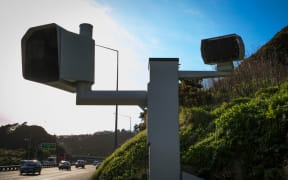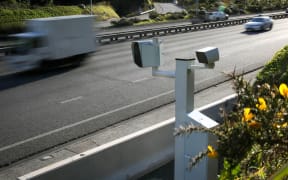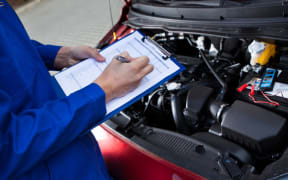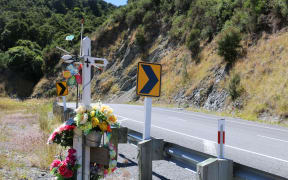Some of the country's most popular cars could be banned from being imported under a proposed new road safety strategy.
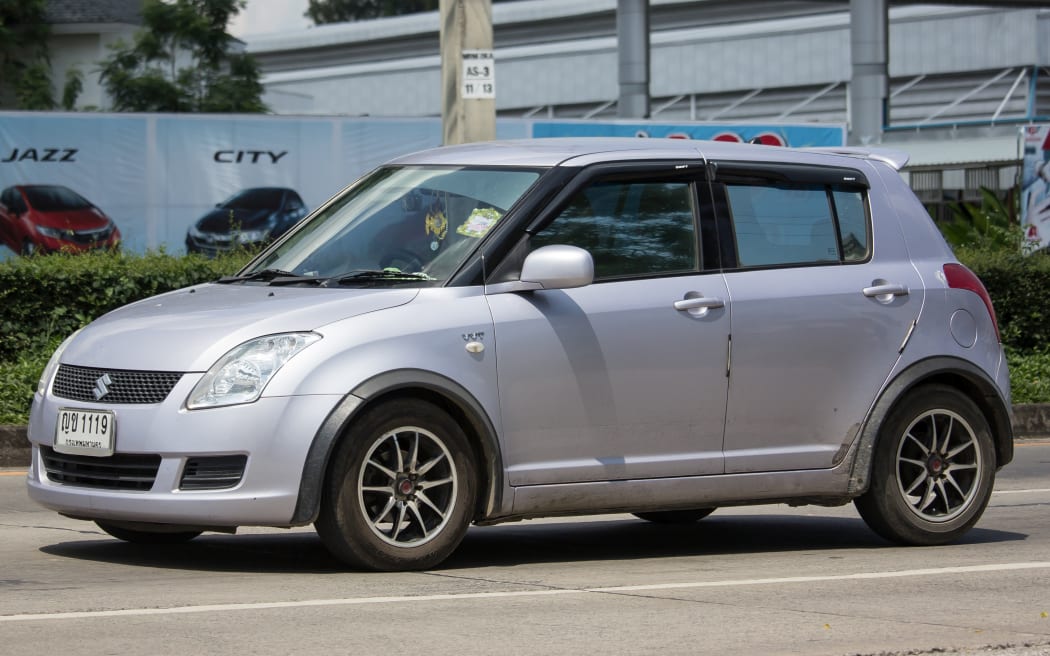
Suzuki's Swift has a low safety rating and would be banned from importation under the proposed new rules. Photo: 123RF
A report obtained by RNZ shows the government will consider preventing cars that have a poor safety rating from entering the vehicle fleet.
They will also look into accelerating the removal of unsafe cars from the current fleet.
Of the five most popular used cars imported into the country last year, three could be banned under the proposal.
Pre-2016 Suzuki Swifts, the nation's second most popular used car, has a safety rating of one or two stars and would no longer be imported.
Toyota Corollas built prior to 2008, and any Mazda Demio - the fourth and fifth most popular used cars respectively - would also be banned from being imported.
Peter Johnston has been involved with importing cars for decades, and said banning some cars would not make the roads safer.
"I don't know who's cooking this all up, but this is absolute nonsense," Mr Johnston said.
"You know, if we come back to the road toll, the road toll is more about driver error.
"As far as vehicles go, our vehicles have improved. If you go back 20 years ago, before Japanese imports, we had a lot of very unsafe cars on the road.
"But with the advent of Japanese imports, the cars became a lot safer, they had airbags, they've got power steering, air-conditioning, they're a lot better quality car."
Banning one-star and two-star vehicles from entering the fleet was one of the top five priorities set out by the Vehicle, Vehicle Standards and Certification Reference Group, one of five groups advising the government on its new road safety strategy which will replace Safer Journeys next year.
RNZ revealed last week the Speed Reference Group had proposed adopting the Swedish model for speed camera use, which would mean hundreds more sign-posted cameras and higher fines.
Both reports said about 45 percent of cars had a safety rating of one or two stars, and about 65 percent of deaths and serious injuries on the road were in those cars.
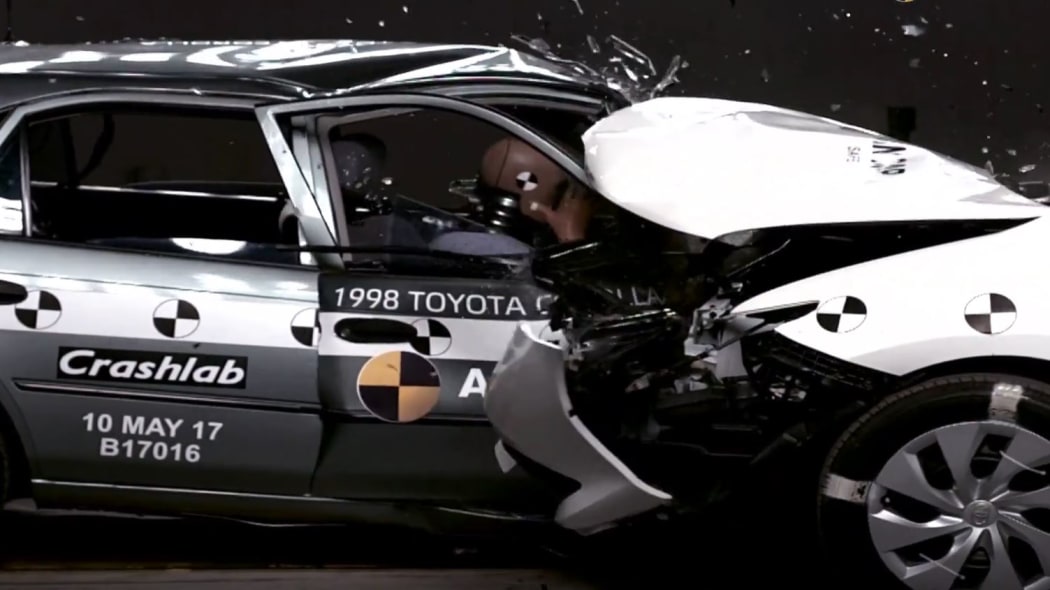
A 1998 Toyota Corolla came out much worse off than its 2015 counterpart in a crash test. Photo: Supplied/ANCAP
The Vehicle, Vehicle Standards and Certification Reference Group report said one of the top five priorities was "preventing unsafe light vehicles from entering the fleet by banning one and two star vehicles or by raising standards".
Mark Stockdale, the principle advisor of regulations at the Automobile Association, said the AA supported the proposal but wanted other measures to be taken first.
"What we'd like to see first is actually the public to be better educated around the safety ratings of the existing fleet that we already have in New Zealand, so that people can make safer choices about the vehicles that are already on the market."
Mr Stockdale said the safety ratings of cars should be made clear to people looking to buy one.
"You can have one that has a high safety rating, and one that has a low safety rating - regardless of the age and regardless of the price - and yet the public aren't very well informed about that," Mr Stockdale said.
"So the best way to do that is to require the safety rating, whether it's a new car safety rating or the used car safety rating, to require that information to be supplied at the point of sale."
There are two safety ratings commonly used in New Zealand - the Australasian New Car Assessment Programme, or ANCAP, which uses controlled crash tests, and the Used Car Safety Ratings, which are based on real-life crash data.
The Transport Agency said it used the ANCAP rating until a car was seven years old, and then used the Used Car Rating, to calculate that about 45 percent of cars have a one or two star rating.
Mr Johnston said that regardless of the data, cars were not the biggest problem on the road.
"There's probably at least 30 percent of those accidents where there was drink involved, or drug drivers," he said.
"And now they're trying to pass legislation also to make cannabis legal in New Zealand ... so, look, something doesn't compute. This is absolute fairyland stuff."
Mr Johnston said cars without Electronic Stability Control (ESC) will be banned from being imported from next year anyway, as part of the Safer Journeys strategy.
Imported Motor Vehicle Industry Association chief executive David Vinsen told Morning Report banning these cars wouldn't necessarily make roads safer.
"Everybody in the industry is really concerned about the age of the fleet. We have close to 4.4 million vehicles ... with an average age of over 14 years - and that's far too old.
"It means that we don't get the benefits of safety and fuel efficiency and economy from new technologies. So, it's a real issue."
He said it was something that the industry had been working on with government for some time, but there were conflicting issues and also the possibilities of seriously perverse consequences.
"If we stop some of those cheaper and presumably less safe vehicles coming into the fleet, it puts the price of those vehicles up, it increases the value of them and they stay in the fleet for longer, and we end up with an even older fleet."
He said it has happened before when undesirable vehicles suddenly increased in value as a result of government interventions.
Ministry of Transport mobility and safety manager Brent Johnston led the Vehicle, Vehicle Standards and Certification Reference Group, and said the government was yet to consider any of the reference group reports.
"Neither the reference group reports, or the discussions therein constitute government policy, and reference group members were advised they were not expected to reach a consensus," Brent Johnston said.
"The reference group reports are the views of a broad section of society, with over 100 people having their input."
The government is set to review the reports then propose a new road safety strategy which will go out for consultation later this year.

